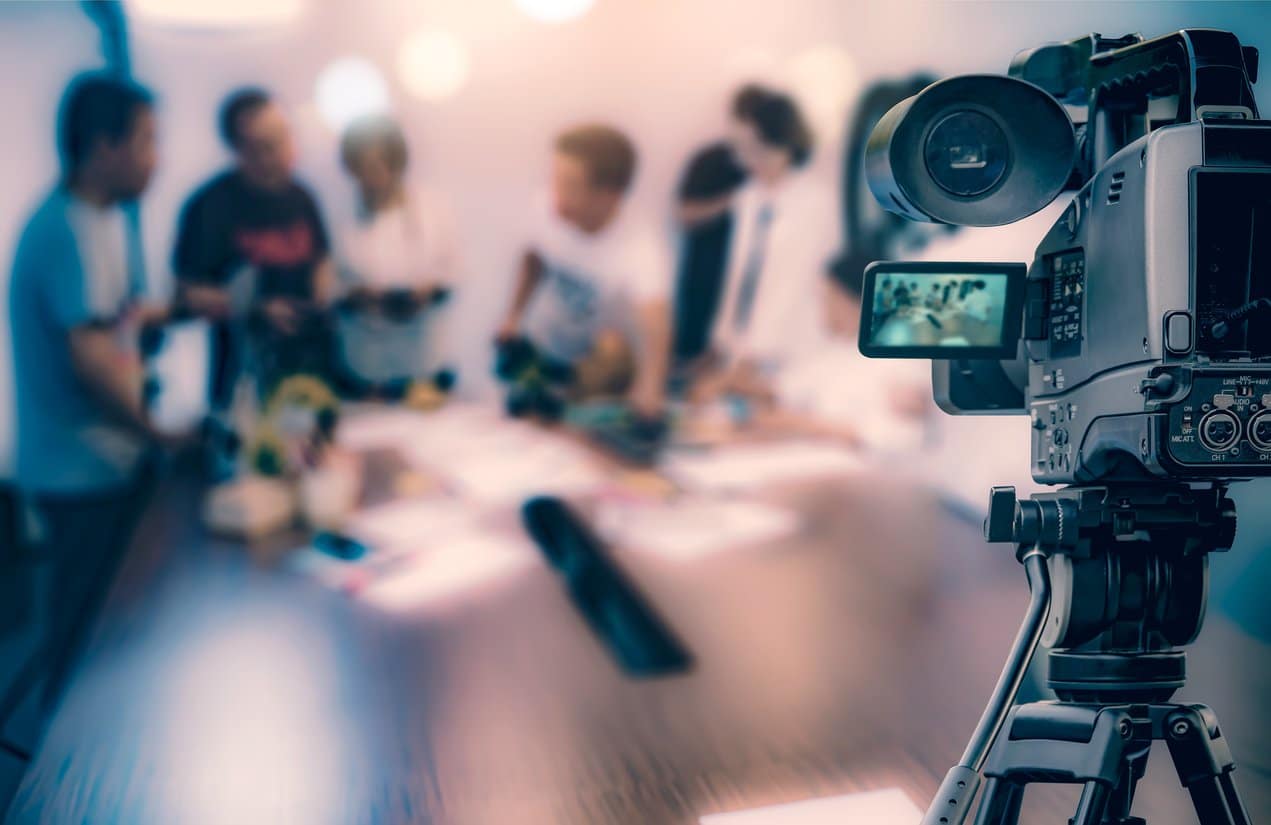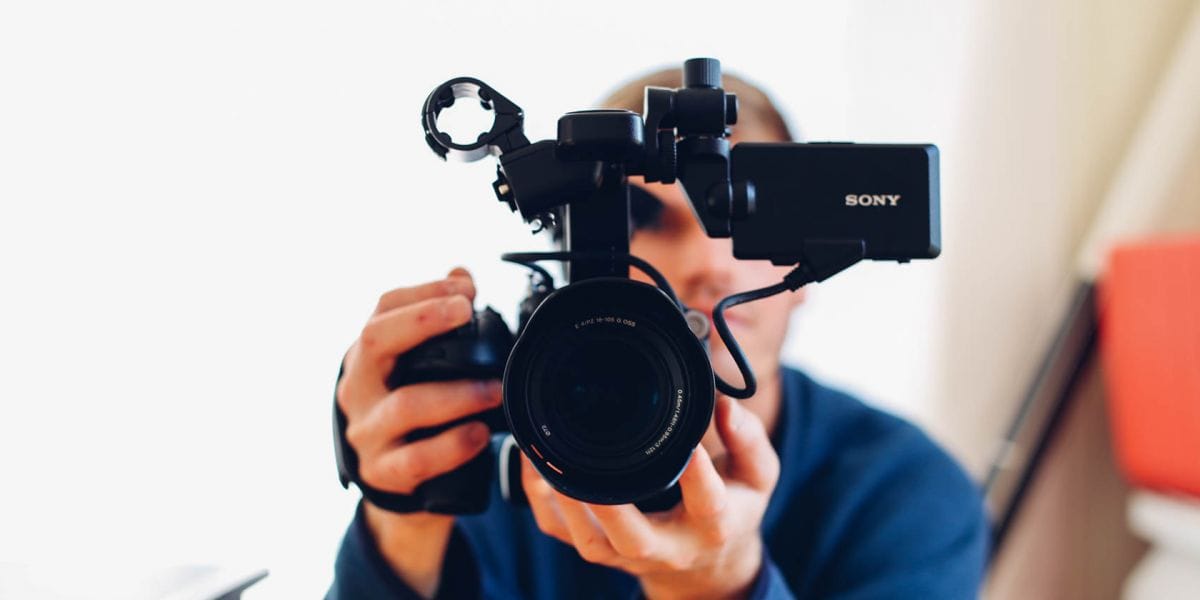The Role of Legal Videography in Depositions and Trials
Lawful videography has actually arised as a necessary tool in both depositions and trials, supplying a multifaceted strategy to documenting witness testaments. As legal experts progressively acknowledge its value, it motivates a deeper evaluation of exactly how these visual documents can influence juror assumptions and trial end results.
Importance of Legal Videography
Legal videography plays a pivotal function in the documentation and discussion of depositions and tests. This specific field integrates technical skills with legal knowledge to create a trustworthy record of proceedings that can substantially affect situation outcomes. The appearance of legal videography boosts the understanding of witness statement, permitting jurors and courts to observe not just the spoken words yet likewise the disposition, emotions, and body language of the witnesses.

The importance of lawful videography extends beyond the court room; it also plays an essential role in preserving evidence for future referral, whether for charms or additional lawful action. Its combination right into the legal process is vital for making sure a reasonable and exact representation of the truths, ultimately contributing to the quest of justice.

Process of Legal Videography
While recording the subtleties of depositions and tests, the procedure of lawful videography entails numerous vital actions that make certain top quality, exact recordings. A specialist lawful videographer prepares by evaluating the situation products and comprehending the particular needs of the deposition or trial. This prep work consists of familiarizing themselves with the individuals and the context, which helps in catching pertinent details.
On the day of the recording, the videographer sets up the necessary tools, which generally consists of high-definition cams, microphones, and proper illumination. Guaranteeing ideal angles and sound top quality is critical, as it directly affects the performance of the recording. The videographer communicates with lawyers and individuals to develop procedures, guaranteeing that everyone understands the recording procedure.
During the deposition or test, the videographer carefully records the proceedings, paying attention to both verbal and non-verbal hints. legal videography. This consists of capturing the disposition and reactions of witnesses and attorneys. After the session ends, the videographer may edit the video for quality and conformity with legal criteria, producing a final item that properly reflects the proceedings for future referral and use in legal contexts
Benefits in Depositions
The incorporation of videography in depositions provides many benefits that improve the overall procedure of collecting proof. One primary benefit is the capacity to record witness statements with visual and auditory fidelity, giving a more exact representation of the Clicking Here witness's demeanor, tone, and body movement. This multidimensional strategy permits attorneys and juries to examine reliability better than conventional written records alone.
Additionally, videographed depositions function as an effective device for protecting testament. Ought to a witness come to be unavailable for test, their taped deposition can be played in court, ensuring that their proof remains obtainable and pertinent. This element considerably minimizes the threat of losing essential details that could affect case outcomes.
In addition, using lawful videography advertises much better prep work for lawyers. Assessing video footage allows legal teams to evaluate and improve their strategies, identifying strengths and weaknesses in their situations. This preparatory advantage can bring about even more engaging discussions in court.
Last but not least, videography improves the general professionalism and trust of the deposition procedure, instilling self-confidence in customers pertaining to the thoroughness of their lawful depiction. By leveraging innovation, lawyers can dramatically boost the performance of depositions.
Influence on Trials
In lots of tests, the combination of videography can substantially affect the presentation of evidence and the jury's perception. Legal videography records witness statements and vital proof in a vibrant format, permitting jurors to engage with the material on numerous degrees. This visual component enhances the narration element of a test, providing context and emotional vibration that typical text-based evidence may do not have.
Moreover, video clip recordings can act as powerful tools for impeachment during cross-examination. When disparities develop between a witness's previous statements and their court testament, video clip evidence offers an unbiased reference that can persuade jurors' viewpoints. This immediacy and quality can boost the reliability of an event's story while all at once undermining opposing disagreements.
In addition, using videography can assist streamline complicated details, making it extra easily accessible to jurors who might battle to understand intricate information offered exclusively with spoken testament. By integrating visuals with auditory information, legal videography can improve retention and understanding, eventually affecting the court's decision-making process. Therefore, the influence of videography in trials extends beyond plain looks; it plays an essential duty in shaping the lawful landscape and end results.
Future Trends in Legal Videography
As we look toward the future of legal videography, a number of emerging patterns guarantee to reshape its role within the court. One significant trend is the assimilation of artificial intelligence (AI) in video evaluation and editing and enhancing - legal videography. AI can improve the process look these up of identifying key minutes in tape-recorded depositions, enabling lawyers to promptly access relevant material, consequently navigate to this website improving efficiency in instance prep work
Furthermore, the increase of virtual reality (VIRTUAL REALITY) and augmented fact (AR) technologies is expected to change how jurors experience proof. By immersing jurors in a substitute setting, these modern technologies can give a much more extensive understanding of complicated scenarios, bring about even more educated considerations.

In addition, the raising need for remote depositions, increased by the COVID-19 pandemic, will likely proceed. Legal videographers will need to adapt to new software program and platforms to guarantee top notch recordings in virtual setups.
Lastly, the growing focus on information security will necessitate more stringent protocols for saving and sharing video clip evidence. As the legal landscape develops, lawful videographers need to stay abreast of these fads to keep their relevance and efficiency in the judicial process.

Verdict
In recap, lawful videography offers a critical feature in the judicial process, improving the stability of depositions and trials. As technology continues to develop, lawful videography is poised to more transform its duty within the lawful landscape.